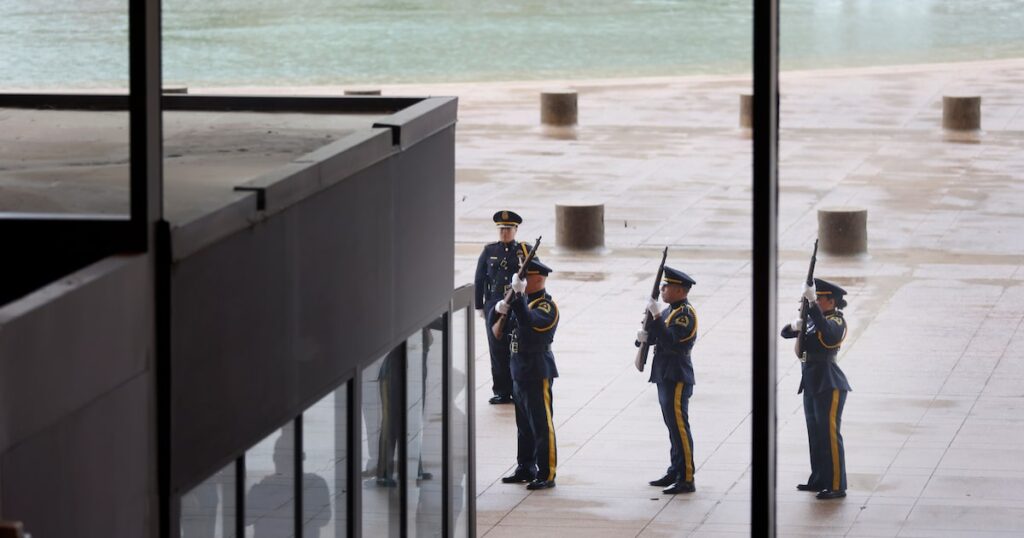Dallas officials appear to be stuck between a rock and a hard place after a deal they tried to broker with the city’s police and fire pension system was rejected Thursday.
The agenda for a special called City Council meeting Saturday indicated the city’s push to authorize the deal.
But it is unclear what the city will do now, especially since a Texas Senate bill that would’ve tipped the stakes in the city’s favor and given weight to its pension payment plan — ramping up spending over five years to resolve a $3 billion funding shortfall in 30 years — has not found any supporters in the Texas House of Representatives. The last day of the legislative session is June 2.
The pension system wants to increase the city’s contributions and has held the upper hand in a legal fight that began last year.
Last year, a judge sided with the pension system and said it had the sole authority to approve a plan.
The ruling meant the city would have to cough up millions more than it wants to fill the hole — the pension is 32% funded. In the upcoming budget cycle, the pension system’s plan, which calls for increasing spending over three years instead of the city’s preferred five-year period, requires the city to allocate an additional $26 million in taxpayer dollars. City officials have said the pension system’s plans could exacerbate the likelihood of service cuts.
The plan also calls for cost-of-living adjustments every year, which, by law, the pension system can only do if it’s 70% funded.
Related:Cruel summer: Dallas braces for tough budget year, short $6.5 million in revenue
The absence of a breakthrough, and what is anticipated to be a grueling budget summer, has only exacerbated anxieties in City Hall.
City officials did not immediately respond to a request for more details around the negotiations.
During the pension system’s board meeting on Thursday, council member Gay Donnell Willis said the city had posted a Saturday meeting hoping for a “positive outcome.”
“We’re leaving out of town, weddings, graduations, to get to the business of the city,” Willis said about Saturday’s meeting, which according to its agenda could have authorized Tolbert and the pension system to go into an agreement.
It is unclear what the provisions of the agreement were. In the past the city has offered a supplementary stipend to pension beneficiaries to overcome the lack of cost-of-living adjustments. The city also wants more oversight authority over the pension system’s investment plans.
Council members have been seeking guardrails on the investments the police and fire pension system makes. The system has a 2% return on its 10-year books, one of the lowest in Texas, with most of it resulting from bad financial decisions between 2005 and 2008 that dragged the pension’s investments down.
The pension system, whose current management inherited the issues, has taken a risk-averse approach and worked to sell bad assets over the last seven years. But the hard-to-exit assets remain. Pension officials have said they expect their 10-year return to shoot up to close to 5% in the next two years.
But comments from the representatives of the police and fire associations indicated a resolution was nowhere close.
Dallas Firefighters Association President Jeff Patterson said he and his team had been meeting with City Manager Kimberly Bizor Tolbert and Chief Financial Officer Jack Ireland multiple times over the last few weeks.
“We’ve been working on trying to come up with some sort of compromise, but we are not there yet,” Patterson said, adding that Tolbert’s plan “still falls short” of what the firefighters are looking for.
“I don’t feel like there’s a rush,” said Patterson, whose wife Tina Hernandez was a pension board member until a few weeks ago. He said he understood the city’s predicament.
“I think that the city feels like maybe there’s a rush because of the time and legislation right now, but overall, I want to make sure that we get this right,” he said.
Dallas Police Association President Jaime Castro echoed Patterson, and said the association wanted time to educate its members on the details of the city’s proposition. Until then, “we do not have a deal,” Castro said.
The pension board then moved into closed session to review the city’s offerings and came back to reject the proposal and continue negotiations.
Mayoral appointees Rob Walters and Steve Idoux opposed the board’s move.


